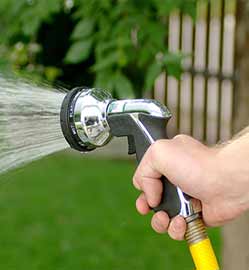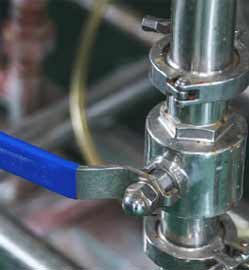A PVC spray hose is a flexible and durable hose made primarily from polyvinyl chloride (PVC) material. It is designed for spraying applications, such as watering gardens, cleaning surfaces, or applying chemicals. PVC spray hoses are known for their lightweight construction, resistance to chemicals, and flexibility, making them easy to handle and store. They are typically reinforced with layers to prevent kinking and ensure consistent water flow, while their smooth interior surface minimizes friction and maintains pressure efficiency. PVC spray hoses are commonly used in residential, agricultural, and light industrial settings due to their affordability and versatility.
A knitted PVC spray hose is an enhanced version of a standard PVC spray hose. It features an additional layer of knitted or braided reinforcement, usually made from materials like polyester or nylon, woven tightly around the PVC core. This knitted layer significantly improves the hose's strength, durability, and resistance to abrasion, punctures, and bursting under high pressure. The knitted design also adds structural stability, reducing the risk of kinking and ensuring a steady flow of water or spray. Knitted PVC spray hoses are ideal for heavy-duty applications, such as industrial cleaning, agricultural spraying, or high-pressure washing, where added durability and longevity are critical. The combination of PVC's flexibility and the knitted layer's reinforcement makes this type of hose both reliable and long-lasting.
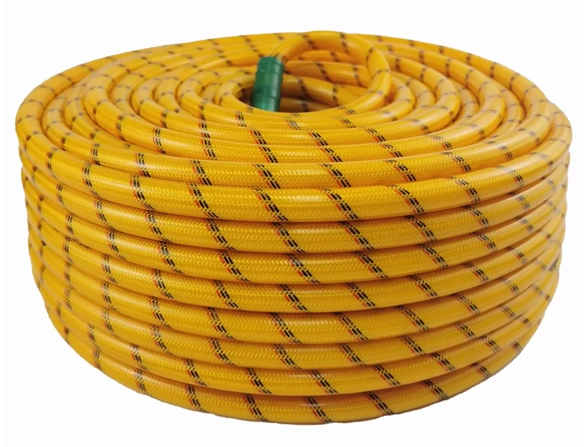
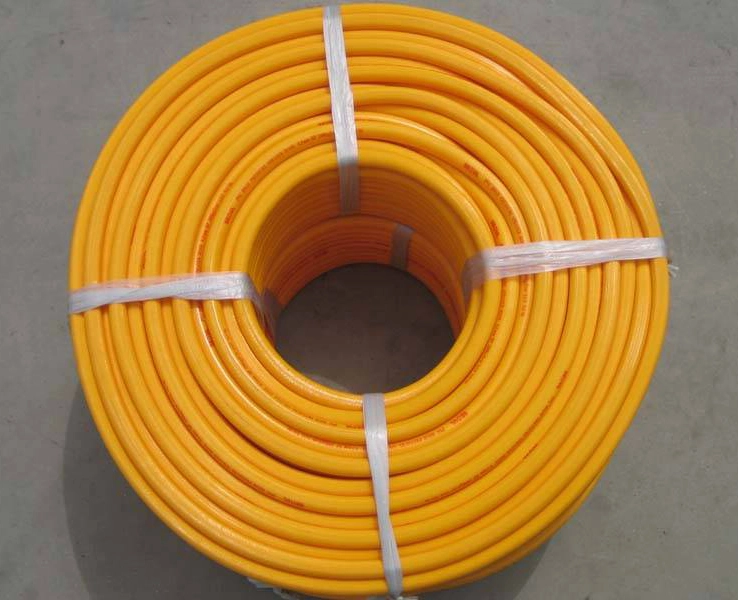

PVC spray hoses are generally considered good for a variety of applications. Here are some reasons why:
Advantages:
-Durability and Flexibility: PVC spray hoses are known for their durability and flexibility. They can withstand high pressure and resist kinking, making them suitable for demanding tasks.
-Chemical Resistance: They are resistant to a wide range of chemicals, which makes them ideal for agricultural and industrial applications where they come into contact with fertilizers, pesticides, and other chemicals.
-Cost-Effectiveness: PVC spray hoses are relatively inexpensive compared to other types of hoses, making them a cost-effective solution for many users.
-Lightweight and Easy to Handle: Their lightweight nature and flexibility make them easy to maneuver and store.
-UV Resistance: Most PVC spray hoses are UV resistant, allowing them to be used outdoors without degrading quickly.
-Wide Temperature Range: They maintain their performance in a wide range of temperatures, from cold winter conditions to hot summer environments.
In summary, PVC spray hoses are a good choice for many applications, especially in agriculture, gardening, and light industrial uses, where their durability, flexibility, and chemical resistance make them a reliable and efficient tool. However, their suitability depends on the specific requirements of the application, such as temperature and the type of fluids being sprayed.
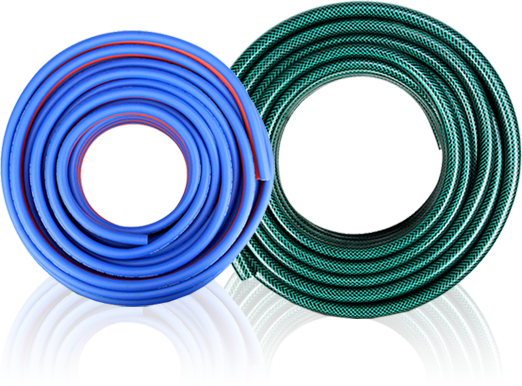
When deciding whether a rubber or PVC spray hose is better, it's essential to consider the specific requirements of your application. Here's a comparison of the two materials:
Cost
-PVC Spray Hose: Generally more affordable, making it a cost-effective option for budget-conscious buyers.
-Rubber Spray Hose: More expensive but offers superior performance and longevity, especially in demanding conditions.
Durability
-PVC Spray Hose: Durable and resistant to abrasion and chemicals, but may crack or become brittle in extreme temperatures or with prolonged UV exposure.
-Rubber Spray Hose: Highly durable, resistant to wear and tear, and maintains flexibility even in extreme temperatures.
Flexibility
-PVC Spray Hose: Less flexible, especially in cold weather, where it can stiffen significantly.
-Rubber Spray Hose: Highly flexible in any temperature, making it easier to handle and coil.
Weight
-PVC Spray Hose: Lightweight, making it easier to transport and handle.
-Rubber Spray Hose: Heavier, which can be cumbersome to move but provides stability in windy conditions.
Temperature Resistance
-PVC Spray Hose: Limited temperature range (-5°C to +60°C), not ideal for extreme cold or heat.
-Rubber Spray Hose: Wider temperature range (-40°C to +120°C), suitable for extreme weather conditions.
Chemical Resistance
-PVC Spray Hose: Better resistance to acids, alkalis, and salts.
-Rubber Spray Hose: May be more resistant to some organic solvents.
Pressure Resistance
-PVC Spray Hose: Typically has high pressure resistance.
-Rubber Spray Hose: Generally weaker in this aspect.
Kink Resistance
-PVC Spray Hose: Prone to kinking, especially in cold weather.
-Rubber Spray Hose: Excellent kink resistance, ensuring consistent airflow.
UV Resistance
-PVC Spray Hose: Moderate UV resistance.
-Rubber Spray Hose: High UV resistance.
Applications
-PVC Spray Hose: Ideal for light to medium-duty tasks such as gardening, agriculture, and general cleaning.
-Rubber Spray Hose: Better suited for heavy-duty industrial tasks, extreme weather conditions.
When recommending PVC spray hoses, there are several compelling advantages to highlight, making them a practical and cost-effective choice for many applications:
-Cost-Effectiveness: PVC spray hoses are generally more affordable than alternatives like rubber hoses. This makes them an excellent choice for budget-conscious users or businesses looking to optimize expenses without sacrificing performance.
-Durability and Flexibility: PVC spray hoses are known for their durability and resistance to abrasion, chemicals, and wear. They remain flexible in most weather conditions, making them easy to handle and maneuver, even in cold environments.
-Chemical Resistance: PVC is highly resistant to a wide range of chemicals, including acids, alkalis, and salts. This makes PVC spray hoses ideal for agricultural, industrial, and cleaning applications where they come into contact with harsh substances.
-Lightweight Design: PVC spray hoses are lightweight, which makes them easier to transport, handle, and store compared to heavier alternatives like rubber hoses. This is particularly beneficial for users who need to move the hose frequently or store it in limited space.
-UV Resistance: Most PVC spray hoses are UV-resistant, meaning they can withstand prolonged exposure to sunlight without degrading quickly. This is a significant advantage for outdoor applications, such as gardening or landscaping.
-Wide Temperature Range: PVC spray hoses perform well in a wide range of temperatures, from cold winter conditions to hot summer environments, ensuring reliable performance year-round.
-Pressure Resistance: PVC spray hoses are designed to handle high pressure, making them suitable for tasks that require consistent water flow or spray force, such as cleaning, watering, or applying chemicals.
-Low Maintenance: PVC spray hoses are easy to clean and maintain, reducing the long-term costs associated with upkeep and replacement.
-Versatility: They are suitable for a wide range of applications, from light-duty gardening to more demanding agricultural and industrial tasks, making them a versatile and reliable choice.
-Eco-Friendly: PVC is recyclable, which adds an environmental benefit to its already impressive list of advantages.
By recommending PVC spray hoses, you are offering a solution that balances affordability, durability, and performance, making it an excellent choice for users across various industries and applications.


